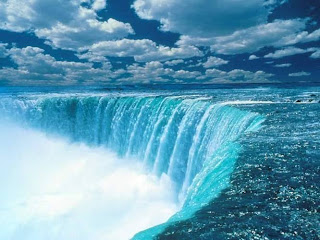
July 4, 2011:
One of the most valuable things we can do for our nation today is to turn our indifference into restoration.
This is true in many areas of our lives. For example, I see real applications of this for Christians and for the church, in terms of our mission as People of God on mission, to permeate our world-culture with the faith, love and hope of Jesus Christ and the reconciliation of humanity he promises.
On a different note, however, and not least in importance, is our participation in helping improve the culture in which we live our lives and are part of. Perhaps our most common global need today, outside the realm of personal faith, is the area of water. Water is a commodity common to all of us. It is absolutely essential to our physical survival as individuals, and it is equally essential to our survival as a global society.
Alex Prud’home describes a scientific article he read in 1968 “titled “The Tragedy of the Commons” in which Garrett Hardin, a leading American ecologist, wrote of “the damage that innocent actions by individuals can inflict on the environment.” Hardin described the pattern by which people acting in their own self-interest destroy shared resources.
“The hypothetical example he used focused on medieval farmers who shared a field, “the commons,” and allowed their cattle to graze indiscriminately. As each farmer added more and more cows to the field, he reaped benefits, but with each cow added, the field became more degraded; eventually all of the grass on the common was eaten, at which point all of the farmers and their cows suffered. Their shared resource was destroyed by individuals concerned only with their own well-being” (Prud’home/The Ripple Effect/ 2010/357-58).
Prud’home has documented our dependence on water, our flagrant and often careless use of water, and our diverse approaches to conserving, protecting, and managing our water resources. He concludes that “By the second decade of the twenty-first century, most people have not run out of potable H20 yet, but they [we] continue to take it for granted, waste it, contaminate it, and mismanage it. These practices are unsustainable” (emphasis added).
With growing numbers of hydrologists, economists, and diplomats warning us that localized water problems could coalesce and tip the earth into a full-blown “water crisis”, can we be patriotic enough, Christian enough, or sufficiently civic-minded enough, to
1) Educate ourselves to the possibilities,
2) Put partisan politics aside and cooperate together to forestall any emergency, and
3) Unite our heads and hearts in redefining how we think of water, and
4) Re-think how we will manage our most precious global resource.
One could begin with the 24th Psalm … “The earth is the Lord’s and the fullness thereof …. That reminds me we have a resource we did not create but are responsible to “use responsibly.” One could turn to other resources for learning better how to protect and manage this common gift (cf sources such as WaterSMART, which stands for Sustain and Manage America’s Resources for Tomorrow).
I personally affirm this gift as a gift of God, a free gift I am free to use and enjoy, along with every other global citizen. However, I also acknowledge the truth that what I do with this gift is “my gift” to God. The way I use or misuse it is only my way of saying “thank you” to God, or it becomes my way of saying “too hell with you” this is nobody else’s business. I look at the following picture of Katrina approaching Magee, MS and I have to wonder if our indifference of attitude about issues such as global warming is just another way of thumbing our nose at whoever put this great globe together in the first place ...

From Warner’s World, what do you say? walking withwarner.blogspot.com
No comments:
Post a Comment